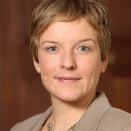Current Transformation Dynamics and the Future of Arab-European Cooperation
Professor Eberhard Kienle, Director of Research at the Institut d’Etudes Politiques in Grenoble, grouped the Arab countries into four clusters: The “rentier states” are defined by limited contestation and a lack of political reforms. Rentier states, such as Saudi Arabia or Qatar, made use of economic measures to alleviate the population’s hardship and thus quell the protests. The second cluster includes “successful monarchies” like Morocco and Jordan. Here, relatively representative and participatory institutions cushion the effect of discontent and allow the ruling regime to stay in power. The third group is characterized by a high degree of societal divisions and important protests. In Libya, Syria, or Yemen, the absence of political reform has led to an exacerbation of violence and conflict. The fourth group, comprised of Egypt and Tunisia, has shown important peaceful protests, which led to change and regime transformation.
Kienle’s outlook on the EU’s ability to affect change was rather bleak. He displayed substantial skepticism toward democracy promotion, saying that it was the conflicts themselves rather than outside meddling that will bring about change and, eventually, democracy. Kienle was confident that the various religious movements and parties, such as the Muslims Brotherhood, will realize the need for compromise and thus be forced to work in a more democratic setting. It is “democracy that produces democrats” and not the other way around, he said.
Aboubakr Jamaï, Co-founder and Editor of the Moroccan news website “lakome.com”, founder of the weekly magazine “Le Journal Hebdomadaire”, agreed that the current state of affairs in the region is unsustainable and that changes will eventually occur. He sees economic developments, demographic change, and the empowerment of civil society through social media as the main driving forces behind these changes. With regards to Morocco’s prospect for transformation, Jamaï showed even more skepticism of European meddling and critiqued the Union on important points. “Sometimes it’s better to leave us alone” he said, pointing out that the EU often only engaged with the ruling regimes, thus dealing a severe blow to democratic and progressive forces within the country. For Morocco in particular, France’s influence and activity in the region was more a curse than a blessing. He would welcome more involvement by states with no historical ties to the region such as Scandinavia or Germany. Jamaï also pointed to the importance of developing a more reasonable approach to Islam, believing that the EU will need to engage with all actors in the region.
Drawing lessons from the EU’s neighborhood policy, Almut Möller also leveled considerable criticism at the Union. The EU should be more modest in its approach and start by “doing its homework” and learning to understand the changes in the region. “Three Ls” (listen, learn, liaise) are perhaps more appropriate than the “three Ms” (money, markets, mobility) that the EU ambitiously suggested in its recent neighborhood policy review. The EU’s internal transformation process should also not be underestimated. Due to the current euro crisis, the Union is changing its internal make-up, which has important implications for its foreign policy in the neighborhood.
